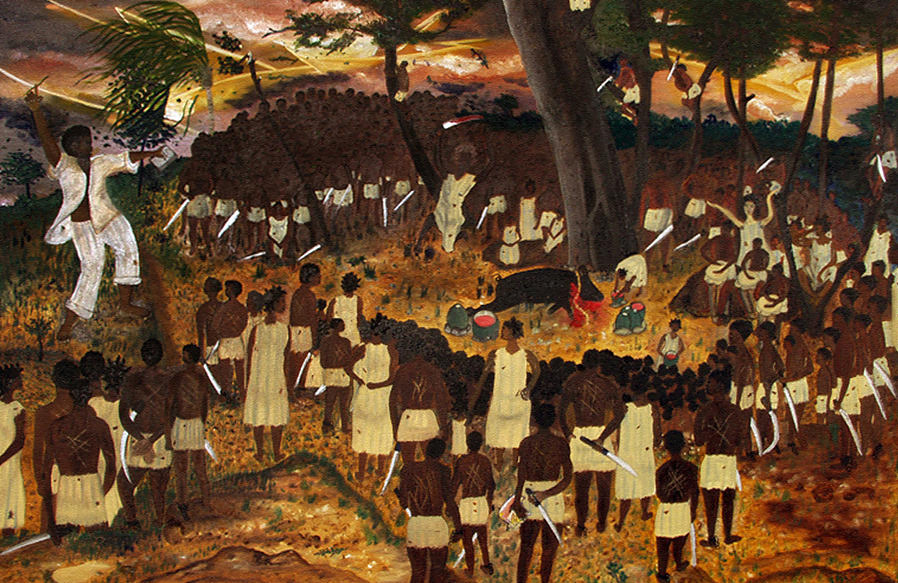
The initial uprising against slavery and exploitation
On the night of August 14, 1791 -- 230 years ago -- a secret ceremony was held in a place in Haiti called Bwa Kayiman, a Creole expression meaning Forest of the Caymans. It was the spark that generated the triumphant slave revolution in 1804.
This event, which went down in history with the name of this place, has the same significance for the sister nation as the call of Carlos Manuel de Céspedes to fight for independence in Cuba, or the Grito de Dolores, which marked the path towards the emancipation of Mexico.
It is a foundational act, which over the years some have tried to overshadow, or even distort, to diminish its importance, but which is present in the hearts of those who seek the freedom and redemption of the poorest people in the Western Hemisphere.
Bwa Kayiman was a congregation of a number of Black slaves, around 200, headed by Dutty Boukman, an African leader who was captured on that continent and sold to work on the plantations, and Cécile Fatiman, a spiritual and religious guide.
There they vowed to start an uprising against the white settlers to drive them out and win their people's freedom.
A few weeks later, the entire northern plains were burning, more than 200 sugar cane and 1,200 coffee plantations were destroyed and nearly 40,000 of the 170,000 slaves in the area had joined the insurrection.
There are different versions of Boukman's death, some say that he fell in combat and others that he was captured alive, decapitated and his head displayed to demonstrate his mortality and French power, but in any case it did not stop the uprising.
It was a total of 13 years of struggle with advances and setbacks, until finally in the early days of 1804 the first victory of a slave revolution was achieved.
The price that these people have had to pay has been hard, sometimes because of the blows of nature; most of the time because of the intervention of foreign powers, determined to keep them under their domination, in addition to many corrupt and dictatorial governments.
Nevertheless, the spirit and rebelliousness of Bwa Kayiman accompanied that nation on its difficult journey and every August 14, Haitian patriots, inside and outside the country, proudly remember that deed, the seed of their nationality, their culture and their longing for a better, dignified and sovereign future.

